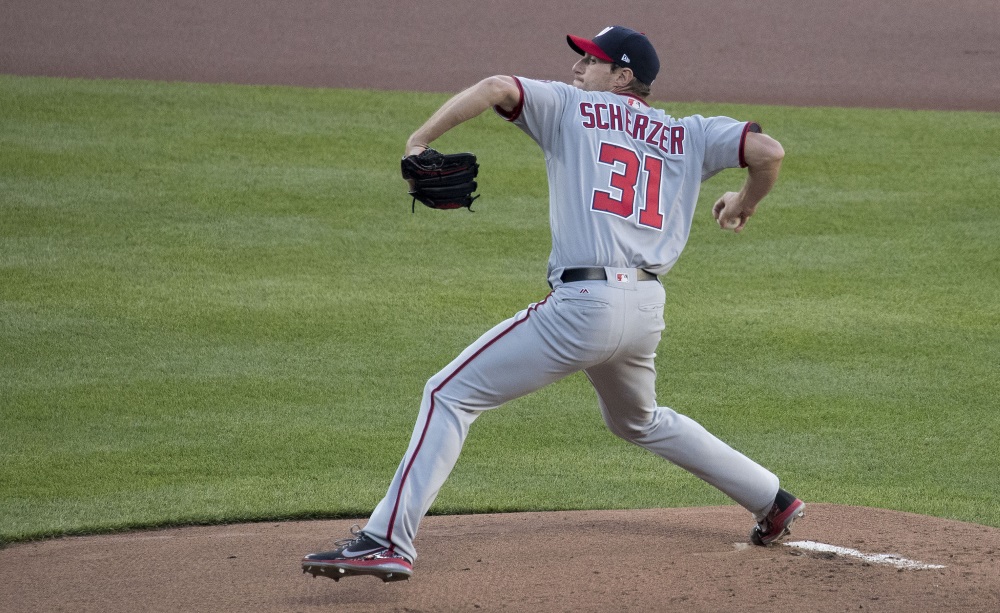A Derby That Delivered the Goods
Walk-off. Walk-off! WALK-OFF! Bryce Harper won the 2018 Home Run Derby at Nationals Park in dramatic and impressive fashion, needing less than the full complement of time to beat his opponents in all three rounds. At ease in front of the hometown fans showering him with cheers, the Derby’s No. 2 seed and the only contestant with previous experience rose to the occasion each time. After dispatching seventh-seeded Freddie Freeman and third-seeded Max Muncy in the quarter- and semifinals, the 25-year-old Nationals superstar did have his back to the wall in the final round against fifth-seeded Kyle Schwarber, but with nine homers in the final minute — on 10 swings by my count, though ESPN’s broadcast said nine in a row — he tied the Cubs slugger’s total of 18. On the second pitch of the 30-second bonus period, he lofted a 434-foot drive to center field, then did a two-handed bat flip as the crowd went wild, and quickly handed the trophy to his barrel-chested father, Ron, who had pitched to him:
In a field that was somewhat lacking in star power, with no Mike Trout (who’s never participated), no Aaron Judge (who did not defend the title he won as a rookie in 2017), no Giancarlo Stanton (who won in 2016 but then was upset in his home park last year), and no player from among the season’s top five home-run totals for the first time since at least 2008, Harper — the biggest name from among the eight participants, even if he has struggled by his own standards this season — took center stage. He became just the third player to win the Home Run Derby (which began in 1985) in his home park, after the Cubs’ Ryne Sandberg in 1990 and the Reds’ Todd Frazier in 2015.
Frazier’s win came in the first year of a format that has turned the event from a three-hour slog into a vastly more entertaining spectacle that ran just over two hours. Instead of swinging until having made 10 “outs” (non-homers), players have four minutes to hit as many homers as possible, with the caveat that a ball can’t be pitched until the last one landed. Each player gets one 30-second timeout in the first two rounds and two timeouts in the finals. A player hitting two homers projected by Statcast to have traveled at least 440 feet unlocks an extra 30 seconds of bonus time.





